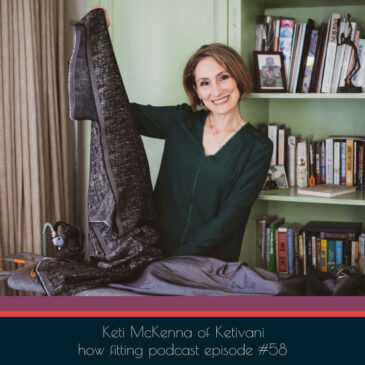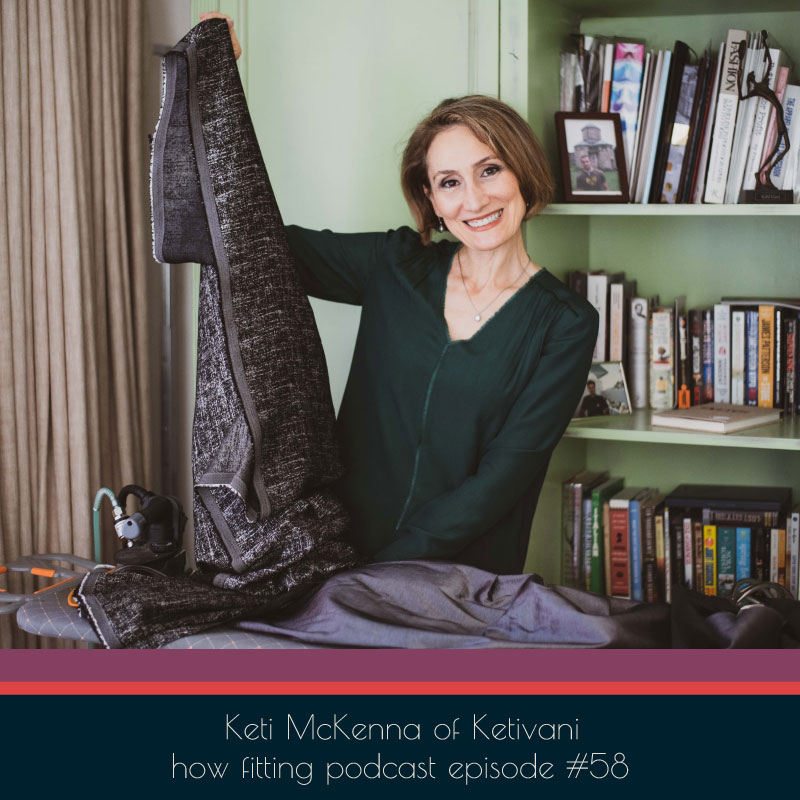
In episode 58, master clothing craftsman Keti McKenna tells the story of her fashion career from recently-immigrated geophysicist in NYC in the 1990s, to seamstress, to patternmaker at designer brands, and finally founder of her own high-end suiting brand Ketivani.
Keti’s original career was as a geophysicist, but she always had a love of fashion and sewing since she was a little girl growing up in Tbilisi, Georgia. She immigrated to New York City in the early 90’s and soon began selling her designs to local boutiques in the Forest Hills neighborhood of the city. At the same time, she completed her Patternmaking degree at New York’s Fashion Institute of Technology. She worked as a patternmaker, fit model, designer and technical design manager for a wide range of companies including Federated, Tommy Hilfiger, Anne Klein, Tahari, Adrianna Papell and Joe Fresh. She frequently traveled to overseas factories to train representatives in craftsmanship and garment construction, as well as to troubleshoot production problems.
She moved to Denver, Colorado with her husband in summer of 2015 for a change of pace and to enjoy what Colorado has to offer. In Denver, she established her own business: Ketivani. She designs and produces upscale clothing for specialty stores and offers classes in sketching, draping and patternmaking at Denver Design Incubator (DDI).
Keti is considered one of the industry’s unique talents. Not only can she draw beautiful and sophisticated fashion sketches, but she also brings a wealth of technical construction knowledge and industry expertise to transform such illustrations to finished products.

In this episode, you’ll learn:
- How Keti got her first job in the industry in NYC in the early 1990s
- Why Keti decided to get a patternmaking degree at FIT
- Why many designer fashion brands thought hand-drafted paper patterns were better quality than digital patterns for many years
- The importance of a good patternmaker
- Why designers sometimes have to approve less-than-perfect fit or quality
- What to look for in a high-quality suit
- Why Keti intentionally keeps her brand small
- The challenges of making high-end products as a small brand
- How Keti got the opportunity to show her work and process as part of an exhibit at the Denver Art Museum and what that did for her business
People and resources mentioned in this episode:
- Ketivani website
- Keti’s email
- Ketivani Instagram
- Ketivani Facebook
- Keti’s LinkedIn
- Denver Design Incubator
Do you want fashion business tips and resources like this sent straight to your inbox? Sign up for the How Fitting newsletter to receive new podcast episodes plus daily content on creating fashion that fits your customer, lifestyle, and values.
